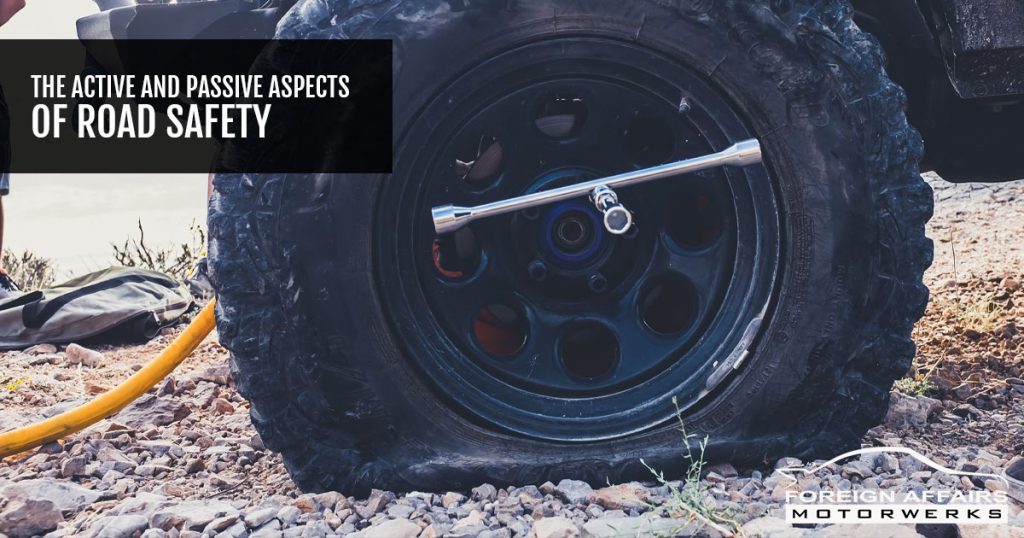The Active and Passive Aspects Of Road Safety

Each year 20-50 million people are injured globally in road-related accidents. Road safety is a neglected topic and prevention is always better than cure. So, let’s take a look at five things you should have in your care in case disaster strikes.
First Aid Kit
A decent first-aid kit can alleviate the trauma associated with an accident. If you haven’t done a first aid course through your work, we suggest that you take one. Even if you never have to use it, having a good first aid kit in your auto can prove useful to treat the kids’ holiday scrapes and bruises.
Some basic things to keep in the kit:
- Conforming bandages
- Band-aids in various sizes
- Disinfectant
- Topical Ointment (Neosporin or Bacitracin)
- Pain Medication (Tylenol or Acetaminophen, Aspirin)
- Anti-Inflammatory (Motrin, Ibuprofen, Aleve, Aspirin)
- Motion Sickness Medication (Dramamine)
Remember that most medication has an expiration date, so check your first aid kit once a year to make sure it is still good.
Warning Triangles
If you end up stranded by the roadside (especially at night) it is useful to have a set of warning triangles. These are placed typically 150 feet away from the front and rear of your vehicle. These reflective road safety triangles can be the difference between you getting rear-ended or not.
Tow Rope
When it comes to tow ropes, rather choose quality over price. A good rope will typically have some heft to it and be reasonably long. You don’t want it snapping while you’re being towed. Remember to keep an eyeball on it – we all have that friend who doesn’t return things.
A Gallon of Water
Preferably a decent quality mineral water, since you may find yourself in a situation where you need to drink it. Modern vehicles seldom overheat, but if your auto gets a little hot under the collar, having water to hand can get you home safely. Road safety pro tip: Remember to stop and let your car cool down before adding water to the coolant since the system is pressurized when the vehicle is warm. If you have to add water, have the cooling system checked when you get home as it may need flushing and leak testing.
Tire Changing Kit
Ah, yes. When it comes to road safety, a tire-changing kit most certainly tops the list. Most vehicles still come with a spare tire – although some Mercedes and Audi models have taken to leaving this out lately because they have run-flats. Once you have made sure that your car has a spare tire and that it is pumped, check the rest. By this, we mean jack and wheel spanner. If you have any doubts as to the quality of your wheel spanner, swap it out for a sturdy cross-type. Trust us, a good spanner can mean the difference between getting the job done or speaking in a language you never thought you knew.
Having a decent emergency kit is one thing, but the first prize is to avoid disaster entirely. If we’ve said this once, we’ve said it a million times. Road safety and vehicle maintenance are linked. You are only as safe as the weakest system in your vehicle. Ensuring that you are up to date with your servicing will mean that critical safety systems, like airbags and seatbelt pre-tensioners, are fully operational.
Take Road Safety Seriously
Drive defensively! Always keep both eyes on the road and both hands on the steering wheel.
Maintain at least a three-second following distance. If the car in front of you suddenly stops, you want to be able to stop as well, without running the risk of banging right into the back of them. This distance should be increased at night, in foggy or rainy conditions, or when the road is wet and slippery.
Road safety is an active and a passive subject. You need to be passively prepared for any circumstance, while actively seeking to avoid dangerous situations through driving aware. If you need more mechanic advice, tips, or just want us to check over your safety kit, pop into our Pompano Beach shop for a thorough inspection of your vehicle’s road safety features.



